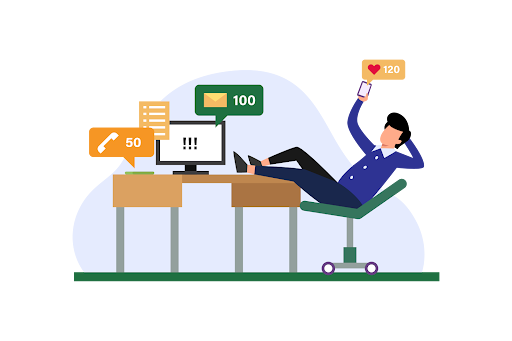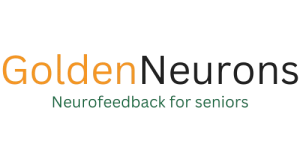In 2025, we’re more connected than ever—but somehow, we feel more disconnected from ourselves. Technology has made life easier in many ways: tasks that once took hours can now be completed in minutes, and automation has replaced much of the physical labor of the past.
Yet, despite these conveniences, many of us feel trapped in a constant cycle of pressure, always striving to do more, achieve more, and buy more.
While digital wellness has become a growing priority, the relentless pull of consumerism, the expectation to be “always on,” and the never-ending scroll of social media have put our mental health under immense strain. Whether you’re dealing with remote work burnout, digital overwhelm, or social media anxiety, you may be wondering what’s actually happening in your brain to cause this? And more importantly, how can we regain control?
The Hidden Stressors of Modern Life
Burnout While Working Remotely in 2025–The pressure to be 'always on'
Remote work and flexible schedules were supposed to give us more freedom. Instead, they’ve blurred the lines between work and personal life, making it nearly impossible to “switch off.” Constant pings from Slack, Zoom, and email keep our brains in a heightened state of alert, contributing to chronic stress and burnout.
A study by the American Psychological Association found that 59% of remote workers struggle to disconnect from work, leading to increased stress and exhaustion. When your home is your office, stepping away from work takes real effort.
Effects of Social Media on Mental Health in 2025–The Comparison Trap
Scrolling through social media has become second nature—but it’s also a silent stressor. Seeing carefully curated highlights of other people’s lives can leave us feeling like we’re falling behind, even when we’re doing just fine.
Research from the University of Pennsylvania showed that limiting social media use to just 30 minutes a day can significantly reduce loneliness and depression. The constant comparison isn’t just draining—it’s actively harming our mental well-being.
Information Overload
In the digital age, information is everywhere. While staying informed is important, the nonstop flood of news—much of it negative—can be overwhelming. Our brains aren’t built to process this much data at once, leading to mental fatigue and heightened anxiety.
A 2024 Pew Research Center survey found that 62% of adults feel overwhelmed by the constant stream of news and information, contributing to decision fatigue and emotional burnout.
The Rise of Loneliness
Despite being constantly connected online, many people feel lonelier than ever. Face-to-face conversations have been replaced by texts and DMs, and the lack of deep, meaningful human connection takes a real toll on our emotional health.
In fact, the U.S. Surgeon General’s 2023 report on loneliness found that nearly half of U.S. adults report feeling lonely, despite spending hours interacting online.
How to Take Control of Your Mental Health
That all sounds pretty bleak—but take a deep breath. It doesn’t have to be this way. The truth is, you can reclaim your mental well-being. With the right tools and habits, you can sail through 2025 mentally, physically, and even financially stronger than ever.
Here’s how:
✅ Setting Boundaries with Remote Work: Protect your personal time by establishing clear start and end times for your workday. Turn off notifications when you’re off the clock.
✅ Limit Social Media & News Consumption: Reduce mindless scrolling and exposure to negativity by setting time limits for social media and curating your news sources.
✅ Prioritize Brain Resilience with Neurofeedback: One of the most powerful ways to build mental resilience is by training your brain itself.
What Is Neurofeedback?
Neurofeedback is a science-backed tool that helps your brain learn to regulate itself, reducing stress and improving mental clarity. Whether you’re dealing with focus challenges, managing your mood, or seeking better emotional regulation, this technology offers personalized solutions for various mental health needs. By training your brain to shift from chronic stress to calm focus, neurofeedback can help you better cope with the demands of modern life.
Many of our clients report feeling more focused, balanced, and resilient after incorporating neurofeedback into their routines. They sleep better, manage stress more effectively, and feel more in control of their emotions—even in the face of life’s daily pressures.
Take the First Step Toward a Calmer, Stronger You
You can’t slow down the fast pace of modern life, but you can change how your brain responds to it. If you’re feeling overwhelmed, anxious, or burned out, neurofeedback could be the solution you’ve been looking for.
Looking for additional support? Our guide to choosing a great planner can help you create structure and reduce mental load while you begin your neurofeedback journey.
👉 Ready to regain control? Contact us to learn how neurofeedback can help you thrive in 2025 and beyond.
📌 Stay tuned for our upcoming posts on sleep and nutrition—two more game-changers for mental resilience that perfectly complement neurofeedback.
Frequently Asked Questions
Combining digital boundaries, scheduled news consumption, and brain training techniques helps manage information overwhelm while staying informed.
The key is implementing structured breaks, using mental resilience techniques, and maintaining clear boundaries between online and offline time.
Neurofeedback provides targeted brain training for mental health, offering a science-backed approach to building resilience against modern stressors.



